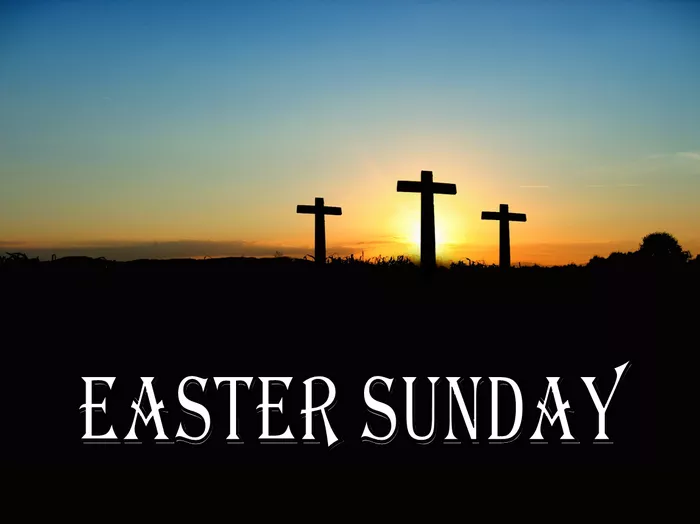In the realm of Christian observance, Easter Sunday stands as a pivotal moment, commemorating the resurrection of Jesus Christ. Yet, behind the festive celebrations and symbolic traditions lies a question that has intrigued scholars and believers alike: Why is it called Easter Sunday? Delving into history, linguistics, and religious practices offers profound insights into the etymology and significance of this revered occasion.
Roots in Ancient Celebrations: The Pagan Origins
To comprehend the nomenclature of Easter Sunday, one must journey back to antiquity, where ancient civilizations marked the arrival of spring with jubilant festivals. Among these, the Anglo-Saxons honored Eostre, the goddess of spring and fertility, during a spring equinox celebration known as Eosturmonath. With the spread of Christianity in the British Isles, these pagan festivities intertwined with Christian beliefs, shaping the linguistic landscape of Easter.
Easter or Pascha? Linguistic and Cultural Influences
The linguistic evolution of Easter Sunday is a tale of cultural assimilation and linguistic adaptation. In the early Christian era, the term “Pascha” (derived from the Hebrew “Pesach,” meaning Passover) was predominantly used to denote the resurrection of Jesus Christ. This term, deeply rooted in Jewish tradition, reflected the theological connection between the Christian observance and its Jewish antecedents.
However, as Christianity spread throughout Europe, it encountered diverse linguistic and cultural contexts. In the Germanic-speaking regions, the influence of the Anglo-Saxon Eostre festival led to the adoption of the term “Easter” to denote the Christian celebration of Christ’s resurrection. This linguistic fusion embodies the intricate interplay between Christian theology and pre-existing cultural practices.
Councils, Controversies, and Consensus: Establishing Easter Sunday
The early Christian church grappled with questions surrounding the timing and observance of Easter. Disagreements arose regarding whether Easter should be celebrated in accordance with Jewish Passover or on a fixed date. The First Council of Nicaea in 325 CE addressed these discrepancies, establishing the framework for calculating Easter based on the vernal equinox and the phases of the moon—a system known as the Computus.
The adoption of the Computus standardized the observance of Easter across Christian communities, yet variations persisted among Eastern and Western churches. The Eastern Orthodox Church, adhering to the Julian calendar, often celebrates Easter on a different date than Western churches following the Gregorian calendar. Despite these differences, the essence of Easter Sunday as a commemoration of Christ’s resurrection remains central to Christian faith and practice.
Symbolism and Significance: Easter Sunday in Christian Theology
Beyond its linguistic and historical dimensions, Easter Sunday holds profound theological significance within Christian doctrine. The resurrection of Jesus Christ symbolizes victory over sin and death, offering believers the promise of redemption and eternal life. The Apostle Paul articulates this theological cornerstone succinctly in his first letter to the Corinthians: “If Christ has not been raised, your faith is futile” (1 Corinthians 15:17, NIV).
Easter Sunday serves as the culmination of Holy Week, a period of reflection and spiritual preparation for Christians worldwide. The rituals and symbols associated with Easter—from the lighting of the Paschal candle to the sharing of the Eucharist—reflect the journey from darkness to light, from death to life. This narrative of renewal and hope resonates deeply with believers, inspiring them to live out the principles of faith, love, and reconciliation exemplified by Christ’s resurrection.
Continuity and Change: Contemporary Observance of Easter Sunday
In modern times, the observance of Easter Sunday has evolved to encompass a myriad of cultural, social, and commercial dimensions. From the colorful Easter eggs and elaborate parades to the ubiquitous presence of the Easter bunny, secular customs have become intertwined with religious traditions, creating a tapestry of diverse expressions of faith and festivity.
Yet, amid the commercialization and secularization of Easter, the foundational message of resurrection endures. For believers, Easter Sunday remains a sacred occasion for worship, reflection, and communal celebration. Churches worldwide resonate with hymns of triumph and alleluias, proclaiming the transformative power of Christ’s resurrection in the lives of believers.
Conclusion
In conclusion, the appellation “Easter Sunday” encapsulates a rich tapestry of linguistic, historical, and theological threads. From its pagan roots to its Christian significance, Easter Sunday embodies the synthesis of diverse cultural influences and theological convictions. As believers gather to commemorate Christ’s resurrection, they affirm their faith in the promise of new life and eternal hope—a message that transcends time, language, and culture. So, why is it called Easter Sunday? In essence, because it represents the dawn of redemption and the triumph of life over death—a truth that resonates deeply within the hearts of believers throughout the ages.
FAQs
1. Why do we celebrate Easter with eggs?
The tradition of celebrating Easter with eggs has ancient roots, predating Christianity. Eggs symbolize new life and rebirth, fittingly representing the resurrection of Jesus Christ. Christians adopted this symbolism, associating eggs with the empty tomb of Christ. Over time, the practice of decorating eggs evolved, with vibrant colors and intricate designs signifying the joy and vitality of Easter. Today, the Easter egg remains a cherished symbol of renewal and hope, shared and enjoyed in various cultural and religious contexts worldwide.
2. Why does a bunny represent Easter?
The association of bunnies with Easter originates from pagan fertility symbols, particularly the Anglo-Saxon goddess Eostre, whose festival coincided with the Christian celebration of Easter. Rabbits, known for their prolific breeding, became emblematic of fertility and renewal, aligning with the themes of spring and new life. As Christianity spread, these pagan symbols merged with Christian traditions, and the Easter bunny became a whimsical figure associated with delivering eggs and joy to children during the Easter season.

